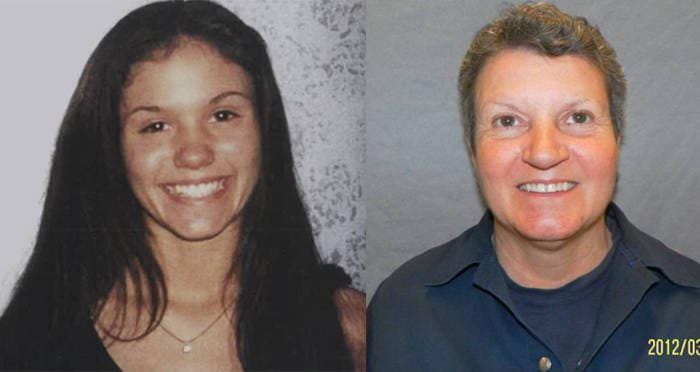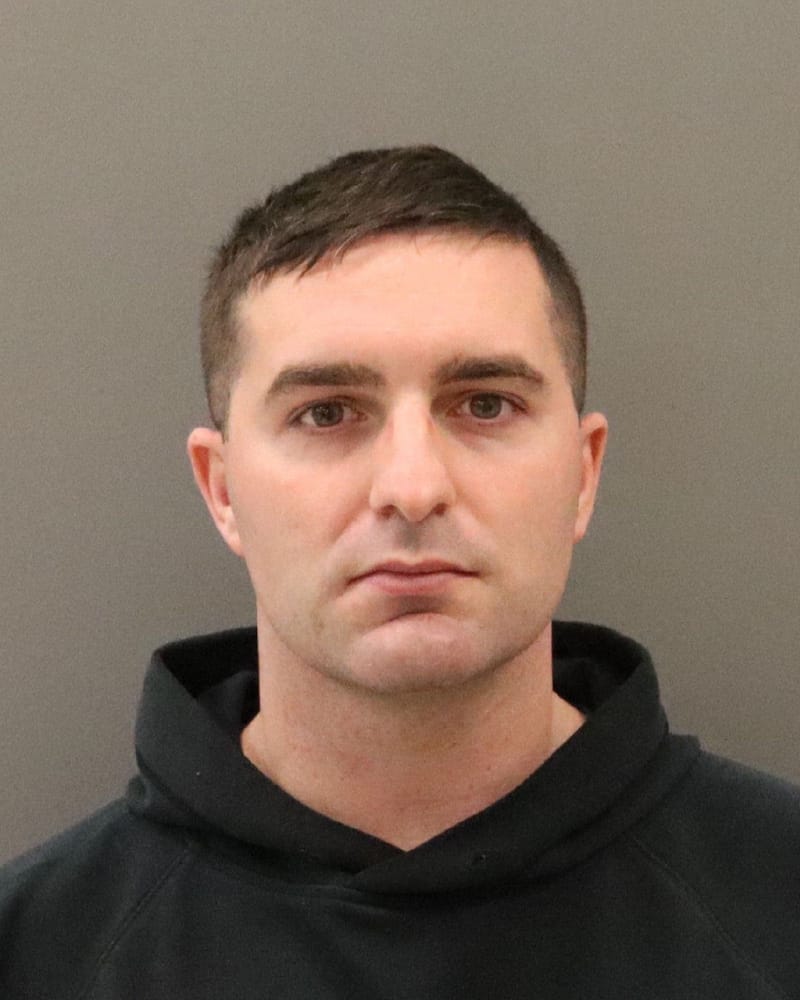Pleading her case: Convicted killer Karen Boes granted hearing for potential retrial
The latest development in the Boes case offers a new avenue to challenge a conviction she has consistently maintained was wrongful.
OTTAWA COUNTY — The gray-haired, expressionless mugshot of Karen Sue Boes is a stark comparison to the soft, matronly looking woman who sat in court 23 years ago fighting for her life.
Whether one believes she is guilty of killing her daughter in 2002 or that she is wrongfully convicted, there is no doubt the past 23 years behind bars has taken a toll on the 69-year-old Zeeland woman. She is serving a life sentence at the Huron Valley Correctional Facility since she was convicted by a jury on March 31, 2003.
But a recent development in the case brings Boes hope.
The Michigan Court of Appeals granted her a major victory: an evidentiary hearing that could result in a retrial if the judge rules in her favor. That could possibly undo a life sentence cast down on her decades ago. It was the eighth attempt to change the outcome of the original sentence, according to the court of appeals language.

Ottawa County Prosecutor Sarah Matwiejczyk said the recent ruling was somewhat expected.
“We do not anticipate any new information, rather testimony of witnesses in addition to the opinions and attorney briefs that were submitted,” she said. “We are not entirely surprised by the (Court of Appeal’s) ruling.”
The latest development in the Boes case offers a new avenue to challenge a conviction she has consistently maintained was wrongful, based on what her legal team describes as "outdated fire science" and "flawed interrogation" techniques used in her original trial.
Boes is represented by the Michigan Innocence Clinic, an organization specializing in non-DNA wrongful conviction cases, according to its website.
Jenna Cobb, co-director of the Michigan Innocence Clinic, underscored the significance of the appellate court's decision and says she stands by her client.
"Karen Boes has always maintained her innocence in the tragic death of her daughter," Cobb said. "This hearing is a long overdue step towards correcting a conviction that was based on outdated fire science and deeply flawed interrogation practices."
A hearing date has not yet been set, Cobb said.
“It is difficult to predict when the hearing will take place," she said. “The prosecution has time to determine its next steps, and we would need to coordinate scheduling and logistics with the court before we even get to the actual evidentiary hearing.”
The appellate court's ruling, which found that the Ottawa County judge "abused their discretion" in denying an earlier request for this hearing, marks a notable moment in the legal process.
According to the written ruling, Boes consistently challenges her own statements made about the case.
“In every court in which she has sought relief since the beginning of this case, she has challenged the validity of her pretrial statements. Defendant has raised this issue again in this current motion for relief from judgment.
In the current motion, defendant argued she is entitled to a new hearing because of shifts in scientific knowledge and consensus regarding false confessions as a result of ‘accusatory interrogations.’
The ruling goes on to say:
“That which is proffered as new and compelling at an evidentiary hearing 20
years after the completion of the trial is neither newly discovered nor compelling. As such, I would conclude the trial court did not abuse its discretion by denying defendant’s motion seeking relief from judgment and a new trial on the basis of her pretrial statements.
I agree the record requires an evidentiary hearing before the trial court on the issue of fire origin experts. I disagree the issue of false confessions should be part of that hearing.”
Complex background
Boes is accused of killing her 14-year-old daughter, Robin Boes, in a house fire. The clinic began investigating her case in 2021, culminating in the evidentiary hearing being granted in 2024, as confirmed by the Michigan Innocence Clinic and court documents.
The case originated on the morning of July 30, 2002, when Boes left her Zeeland home and less than an hour later, the residence was engulfed in flames. Her daughter inside died of smoke inhalation, according to the Michigan Innocence Clinic and news archives.
Boes was subsequently convicted in 2003 of first-degree felony murder and sentenced to life in prison without parole, as reported by the Michigan Innocence Clinic.
The prosecution's case at trial largely relied on expert testimony asserting that the fire was intentionally set with an accelerant in the hallway outside Robin's bedroom.
This conclusion, according to court documents, was drawn from "burn patterns and fire dynamics" despite a "lack of physical accelerant evidence in the hallway," as detailed in court documents.
Investigators reported a strong smell of gasoline on the stairs and in the upstairs hallway after the fire, and a five-gallon gas can was found in her daughter’s room, according to the Michigan Innocence Clinic. However, the fire's origin was determined to be the hallway, not the bedroom, according to court documents.
During the trial, John DeHaan, then president of Fire-Ex Forensics Inc., presented his expert testimony regarding the origin of the fatal fire. He posited that the blaze originated in the hallway just outside Robin's bedroom. DeHaan theorized that Boes had intentionally dispersed gasoline within her daughter's bedroom, nearly closed the door, ignited the accelerant, and then exited the residence. To support this theory, DeHaan cited burn patterns observed on the floor, door, walls, and Robin's remains.
Despite this testimony, forensic tests on Boes' clothing, shoes, and car yielded no traces of gasoline. Conversely, a police dog, trained to detect fire accelerants, reportedly indicated the presence of a small amount of gasoline on a chair in the master bedroom. Notably, this dog was permitted to "testify" during the trial, a practice no longer admissible in court.
Later, in 2015, DeHaan's credibility was called into question.
A recommendation was made for his expulsion from the Ethics Committee of the American Academy of Forensic Sciences. This action stemmed from his failure to amend his testimony in a Louisiana case involving the deaths of three children in a house fire. Several years later, DeHaan ultimately retracted his initial report that the Louisiana fire had been intentionally set.
Prosecutors maintained she did it
The prosecution has always stood by the narrative that Boes was the only other person in the house at the time of the fire. Her statements to police, including some suggesting she "could have" started the fire, were used against her at trial, according to court documents.
Court documents also indicated a "tumultuous relationship" between mother and daughter, with Boes reportedly telling multiple witnesses she "hated her daughter" and "had a violent streak against her" leading up to the fire, as stated in prior court documents.
Attempts made to get a comment from the current Ottawa County Prosecutor’s Office were not successful.
Support Our Work
Ottawa News Network is a nonprofit news service dedicated to providing the residents of Ottawa County with trustworthy, community-driven news. ONN treats journalism as a public good — something that enriches lives and empowers Ottawa County’s 300,000-plus residents to stay engaged, make informed decisions, and strengthen local democracy. Please consider giving today.
In her own words: ‘I killed our daughter.’
Boes’ case has received attention in the past few years after it was featured on the Netflix show, “The Confession Tapes.” In a 2017 interview from prison with The Sentinel when the show came out, Boes said she hoped a new jury would decide differently than that 2003 jury.
“I hope people give me another chance,” Boes said. “Bottom line, I wasn’t even there, so I really would hope that they look at the new science.”
Shortly after Robin’s death, Boes was interrogated for eight hours by the Zeeland Police Department. She was also interrogated several times afterward and later failed a polygraph test.
Though Boes never outright confessed to setting the fire, she was asked by police to imagine how she would have set the fire in a dream or if she had lost her mind and set the fire without knowing she had done it.
When Boes began to doubt her memory of the incident, police used this tactic to try and get her to remember what happened. Boes did not have an attorney present during these interrogations.
In her interview with The Sentinel, Boes suggested she was pressured by authorities into saying things she didn’t mean.
"I was very naive," Boes said. "They told me that they just wanted to find out what happened to my daughter, like I did."
During the trial, 16 hours of police interrogation recordings were played for the jury.
"Oh, Robin. I'm so sorry if I lost it and burned you. I'm so sorry, dear," Boes said in the tapes played at trial, according to The Sentinel's archives. "I don't know if I lost it or what. Apparently I did. That's what you're telling me. You know, you guys are looking for answers that I don't have the answers to."
Later on, the prosecutor played a portion of the interrogation where Boes was talking to her husband about what the police were asking her.
"The facts are right there, Wayne. I did it," she told him. "I killed our daughter. I could have easily went insane temporarily for five minutes. I must have just went crazy and lost control.
"The evidence shows I did it. As far as the story goes, I think I got talked into it and that's OK. I'll take the rap. I'm not going to keep fighting this."
Boes' supporters, however, have said Robin may have started the fire herself, either on purpose or accidentally.
Boes also said she recalled asking for an attorney during her interrogation.
"I do very specifically remember asking during the interrogations if I needed an attorney," Boes said. "They told me I didn't … I was just too trusting. It was just a matter of misguided trust."
The officer who interrogated her was her neighbor and allegedly a friend, according to The Sentinel. He denied that she asked for representation during that interrogation.
— Heather VanDyke covers northern Ottawa County for the Ottawa News Network. Contact her at hvandyke@ottawanewsnetwork.org.





